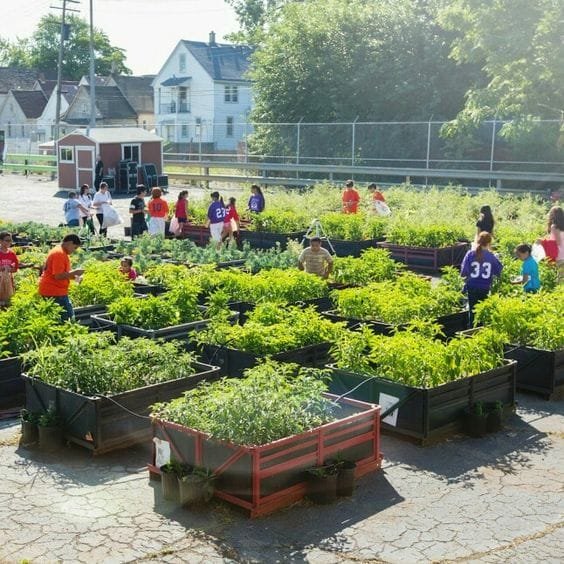In the heart of South Seattle, a tale of struggle and resilience unfolds daily as residents like 60-year-old Janet McDurly make their way to work. Amidst their journeys, they pass by Jimi Hendrix Park, a 2.3-acre community oasis nestled in Seattle’s Central District. Janet and fellow volunteers in this predominantly African-American community dedicated their weekends to planting seeds and nurturing crops in the park’s community garden, established in 2020 by Black Star Farmers.
But in July 2021, Janet stumbled upon a disheartening scene during her routine walk: the flourishing garden had been bulldozed. The City of Seattle, in collaboration with its police and parks departments, had obliterated the vibrant garden that had provided sustenance for food- and nutrition-insecure residents.
The Park was conceived in December 2011 to be an inclusive green space. Before destruction, the farm yielded lettuce, cucumbers, squash, zucchini and various other foods. The removal or threat to Black-run or owned community gardens by local city agencies is not a new occurrence.
Until 2013, many Black residents in Detroit were unable to cultivate food for their communities due to urban agriculture ordinances and zoning laws that prohibited residents from operating urban farms on public city-owned land.
The struggles faced by communities seeking to establish and maintain community gardens are not unique to Seattle. In Detroit, for example, Black residents encountered significant barriers until 2013, as urban agriculture ordinances and zoning laws prevented them from cultivating food for their communities on city-owned land.
There are several potential solutions that could be implemented to make urban agricultural policies more equitable.
Community-Driven Urban Agriculture Policies: The first step towards equitable urban agriculture is involving the affected communities in shaping the policies that impact them.
Preservation of Green Spaces: Cities should prioritise the preservation of green spaces and community gardens in their urban planning.
Land Ownership and Leasing: Providing long-term leases or ownership opportunities for community gardens can safeguard them against eviction.
Support and Resources: Communities engaged in urban agriculture need access to resources and support.
The story of Jimi Hendrix Park and the struggles faced by community gardens in Seattle, Detroit and Baltimore is a reminder of the challenges that communities of colour continue to confront. By preserving green spaces, cities can ensure that community gardens flourish and become a source of empowerment for all residents.


